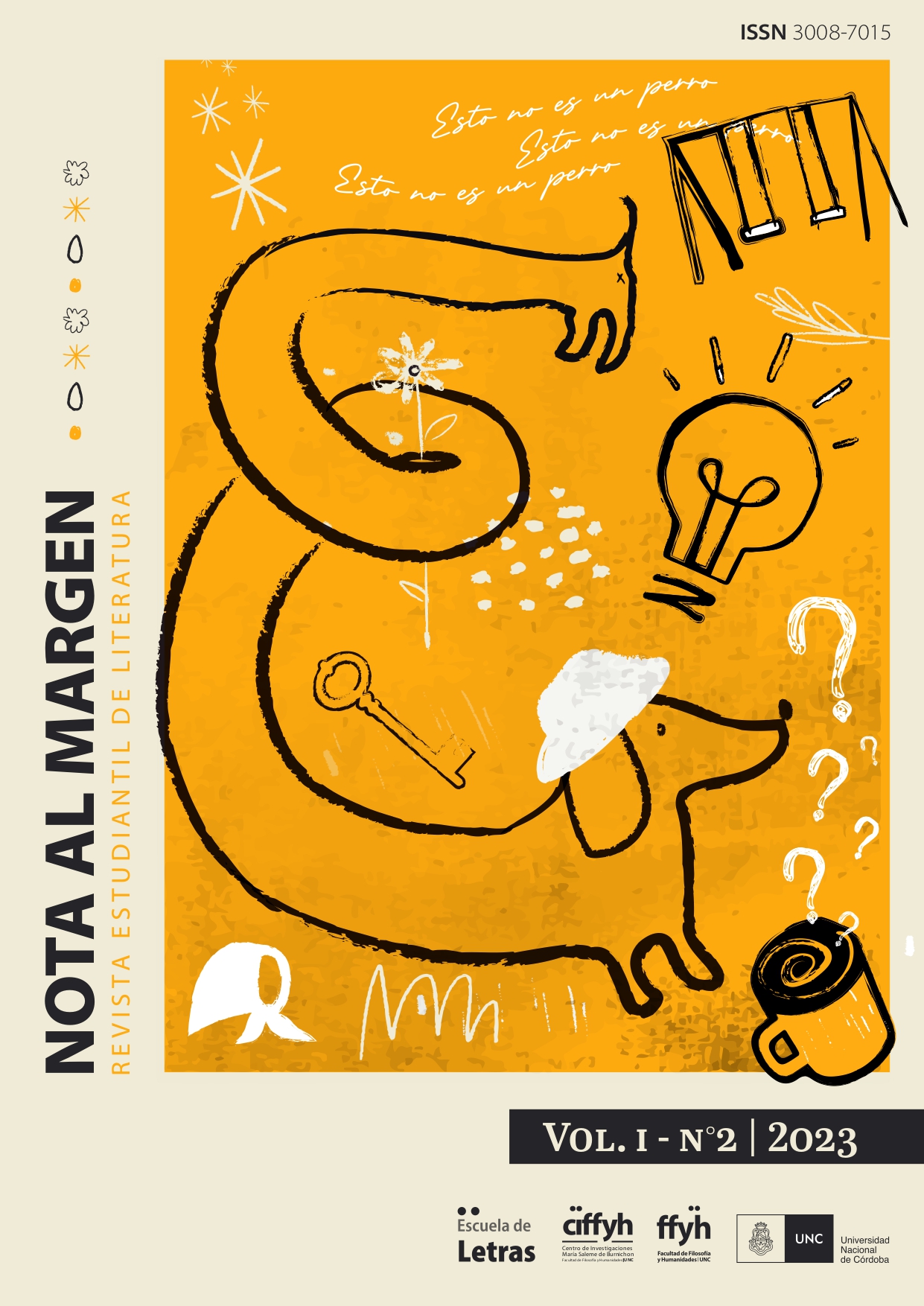Deconstructing Gender: A Theoretical Approach to Virginia Woolf's Orlando
Keywords:
gender stereotypes, realistic narrative, Virginia Woolf, feminism theoryAbstract
The topic to be developed in this article is the denunciation of gender stereotypes and how they condition our way of thinking and acting. The corpus worked with in this analysis is composed by Orlando (1928), written by Virginia Woolf, which will be treated as a critical-reflexive text to delve into gender fluidity and the feminist discourse of the time. The author imagines the existing possibilities beyond Victorian conservatism and creates a protagonist who transcends the limits of gender binary. By means of this novel, Woolf exposes both an introspective and external portrait of her thinking, she reports the feminine status, not only within the academic world but also in the social sphere, in a subtle but direct way, aiming to examine the multiple difficulties of women. This article highlights the implicit ideas, particularly in relation to women during the 20th century, in the work of Woolf and the gender issues that it addresses, through a hermeneutic analysis, understood as the art of interpretation in which author, text and reader converge. In addition, the concepts of gender by Judith Butler (2005), Monique Wittig (1992) and Marta Lamas (1986) are considered.
Downloads
References
Ahmed, Sara (2018). Vivir una vida feminista. Ediciones Bellaterra.
Butler, Judith (2005). Cuerpos que importan. Sobre los límites materiales y discursivos del sexo. Ediciones Paidós Ibérica.
Butler, Judith (2006). Deshacer el género. Ediciones Paidós Ibérica.
Butler, Judith (2007). El género en disputa: el feminismo y la subversión de la identidad. Ediciones Paidós Ibérica.
Chung Huamán, Gabriela (2022). Resignificando el corset: una mirada íntima a sus efectos adversos, la sexualización del cuerpo y los estereotipos de belleza en la mujer contemporánea. Tesis de Grado. Disponible en: http://hdl.handle.net/20.500.12404/22783
Eagleton, Terry (1998). Una introducción a la teoría literaria. Fondo de Cultura Económica.
Frye Córdoba, Melida & Gutiérrez, José (2017). Historias de tránsitos y transgresiones del género en el armario de Orlando de Virginia Woolf. Revista de Filología y Lingüística de la Universidad de Costa Rica, 42 (2), 23-41. Disponible en: https://doi.org/10.15517/rfl.v42i2.27790
Lamas, Marta (1986). La antropología feminista y la categoría género. Nueva Antropología, 8 (30), 173-198.
Pateman, Carole (1995). El Contrato Sexual. Anthopos.
Rabaté, Colette (2007). ¿Eva o María? Ser mujer en la época isabelina. Woolf (1833-1868). Ediciones Universidad.
Scott, Joan W. (2012). Las mujeres y los derechos del hombre: Feminismo y sufragio en Francia, 1789-1944. Siglo XXI.
Varela, Nuria (2013). Feminismo para principiantes. Zeta Bolsillo.
Wittig, Monique (1992). El pensamiento heterosexual y otros ensayos. Egales. Capítulos 1, 2 y 3, 21-57.
Woolf, Virginia (2009). Orlando. Trad. por Jorge L. Borges. Edhasa.
Zárate Sánchez, Karla E. (2015). Cuerpos migrantes: análisis de los procesos transgénero y transexual en los protagonistas de Orlando de Virginia Woolf y de Cuerpo náufrago de Ana Clavel. Tesis Doctoral. Universidad Iberoamericana. Disponible en: http://ri.ibero.mx/handle/ibero/946
Published
How to Cite
Issue
Section
License
Copyright (c) 2023 Sofía Salto

This work is licensed under a Creative Commons Attribution-NonCommercial 4.0 International License.
Usted es libre de:
Compartir — copiar y redistribuir el material en cualquier medio o formato.
Adaptar — remezclar, transformar y contruir a partir del material.
La licenciante no puede revocar estas libertades en tanto usted siga los términos de licencia
Bajo los siguientes términos:
Atribución — Usted debe dar crédito de manera adecuada,
brindar un enlace a la licencia, e indicar si se han realizado cambios.
NoComercial — Usted no puede hacer uso
del material con propósitos comerciales.









